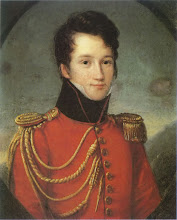Friends
and Enemies
J
|
ulian
once remarked – humorously – that an elderly German colleague of his looked
like Rommel, when he wore a peaked cap. He thought he was bestowing a
compliment. His colleague was furious with him when this remark was repeated to
him by a mischief-maker. Too late Julian realised that one should never compare
anyone to the brilliant general of defeated
army. Had he substituted ‘Patton’ or ‘Zhukov’ for ‘Rommel’ his colleague
would doubtlessly have felt flattered. Human vanity is apparently limitless, as
is the human propensity for making mischief.
A close friend of mine once turned
on me savagely, insisting that I had ruined his chances of gaining a Chair for
which he had applied by slandering him to the Selection Committee. Nothing I
could say could persuade him otherwise, even though I proved to him that I
could not have had access to the Selection Committee, since I did not know any
of its members. He broke off our friendship. I could only surmise that someone
had invented the story and he wanted to believe it to explain the failure of
his application. But who would spread round such a story and why? The
“motiveless evil” of Iago exemplifies this type of destructive lying. People
like Iago are found everywhere. They destroy for the sheer pleasure of
destroying. And we are often their willing accomplices as well as their
victims.
The slanderer’s story found fertile
ground because my friend had earlier almost died from a heart attack. While he
was in hospital, his wife had angrily accused me of having brought on the
attack through persuading him to take up jogging with me three years earlier.
Yet the doctors said that had he not been so fit, he would not have survived
the attack. Nothing they or I could say could persuade her to change her mind.
She continued to hold me responsible. The real culprit, as she was aware, was
probably her fat-saturated Russian cooking, which had raised her husband’s
cholesterol levels to dangerous heights. Once a scapegoat, always a scapegoat.
As René Girard.
My aunt once remarked petulantly,
“You know, she’s my best friend yet I can’t stand her”. I told her that I was
sure her friend was saying the same thing about her.
Forgiving one’s enemies is easy,
forgiving one’s friends almost impossible. After all, one does not associate
with one’s enemies.
La Rochefoucauld (1613-1680)
remarked that it was more shameful to distrust one’s friends than to be
deceived by them. To believe this today is rightly to be marked down as a fool.
“Women look at each other like
Guelphs and Ghibellines”. A close friend of Constance’s told her recently that
thirty years ago, when they first met, she and all the other women on campus
heartily disliked and resented her because when she was out with them, men
looked only at her. This surprised Constance, who had never for a moment
suspected that she was unpopular. Great beauty, like high intelligence or
marked talent, entails serious disadvantages. As the ancient Taoists pointed
out, “the sweet spring of water is the first to be drunk dry; the straight tree
is the first to be cut down”. That Taoists understood the destructive power of
envy.
So did the Jews. “Anger is
raging…but who can stand against envy?” (Proverbs). The envious strike out
because they themselves suffer torments. As the Russian proverbs say, “Envy
fired and grills itself”. And, “The envious drink vinegar”.
One of Sharon ’s
brothers-in-law remarked to her, “For God’s sake, Sharon
When my study caught fire, some
years ago, almost burning the house down and destroying my valuable library,
several of my colleagues could not hide a smile of satisfaction even as they
were commiserating with me. One of them even burst out laughing, such was her
pleasure. This is the smile of schadenfreude,
malicious delight in another’s misfortunes. The Germans have a word for it, the
English do not. Clearly, the Germans have more self-insight in this matter than
do the English.
When we sustained a serious
financial loss, the schandenfreude
felt by some of our relatives was too great for them to hide. Their pleasure
was so obvious, it embarrassed us, but not them. We were embarrassed because
they did not realise how crassly they were behaving. La Rochefoucauld was
right. Only the truly good do not derive some pleasure or at least some
consolation from the misfortunes of others, especially the misfortunes of their
friends (Maxims, 1665). The truly
good do not realise this and hence form wrong opinions about the essential
goodness of humanity.
The police are familiar with a
phenomenon they call ‘the criminal grin’. This is also indicative of schadenfreude.
I once saved a stranger from
drowning in Beirut
Time and time again, I have known
people suddenly turn on me because someone had lied to them about something I
was falsely supposed to have said or done. Nobody has ever asked me if the
story was true. Presumably, there is some sort of evolutionary benefit in
slander, or it would not have survived. If chimpanzees could talk they would
certainly lie, for they are known to deceive each other to obtain food. Lying
is inseparable from speech, since deception confers an advantage.
COPYRIGHT (C) 2010 J D FRODSHAM




No comments:
Post a Comment